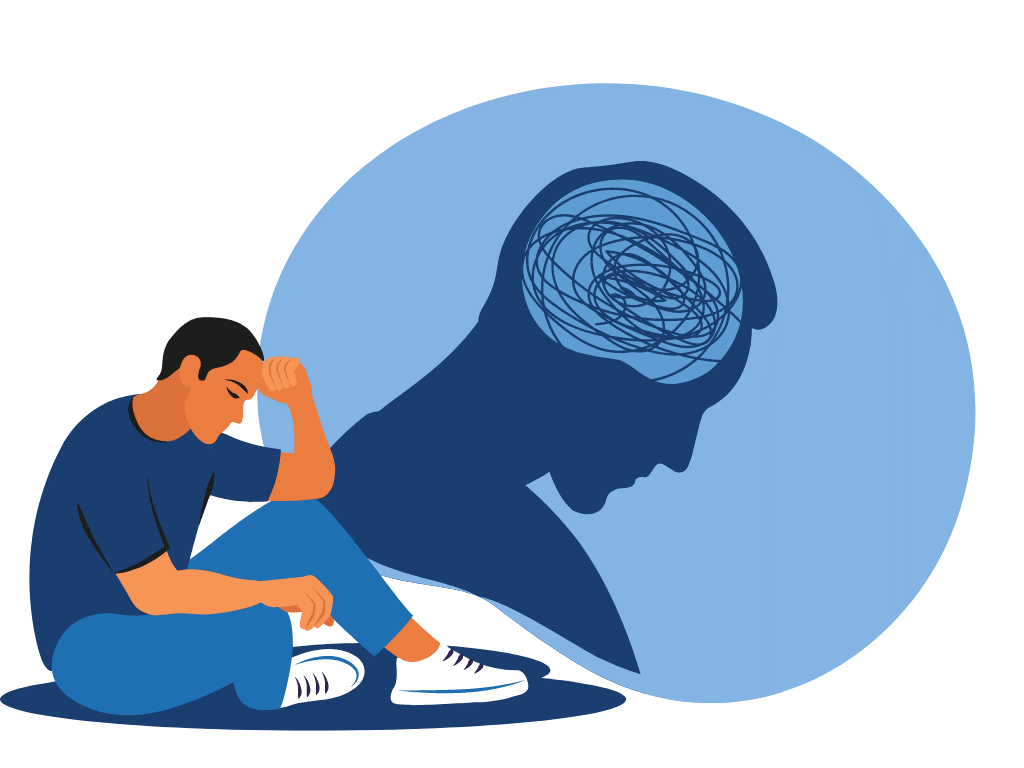Mental wellness is central to our well-being and impacts every aspect of our lives, making it essential to enhance psychological well-being by taking appropriate actions. To maintain optimal psychological wellness in everyday life and achieve overall better wellness for life.
Mental well-being means having a positive outlook, undertaking their daily tasks without issues and maintaining meaningful relationships with friends and colleagues.
On the other hand, severe mental health conditions can significantly impede an individual’s career, education and long-term goals.
Its Impact and Importance
Mental illness and mental health concerns have long been recognized globally; evidence can be seen throughout history illustrating its prevalence across many conditions such as depression, anxiety disorders, schizophrenia and bipolar disorder among others.
According to World Health Organisation (WHO), one out of every four people will experience mental health challenges at some point during their lives, making mental illness one of the foremost global concerns today. Recognising and responding effectively to mental health challenges are of crucial importance and must be given equal weight alongside physical ailments as a key priority area of attention.
Myths and Misconceptions Regarding Mental Health
There can be little debate that mental health has finally garnered the recognition it deserved after decades of being sidelined, yet many misconceptions and myths exist around mental illness – stigma, old-fashioned thinking etc still exists within society, making dispelling misconceptions imperative. To do so. Some of the most prevalent myths about mental health issues are listed below:
- A person with a mental health issue has low intelligence: this is not true; anyone can be affected by mental illness regardless of their social class, intelligence or income level.
- If you have a mental illness only then you can take care of your mental health: the truth is anyone can take effective measures and steps to improve their mental health such as by engaging and participating in healthy habits.
- Poor mental health in teenagers does not matter: it is believed that mental illness does not affect teenagers as they often have mood swings caused by hormonal fluctuations. But the fact is that, according to UNICEF, 14% of adolescents worldwide experience and suffer from mental health problems.
- Developing mental health illness is unstoppable: the fact related to this myth is that a person can take various steps to prevent developing mental health conditions such as seeking help early on, having a positive environment or developing healthy and warm family relationships.
- Mental illness is a sign of weakness: The fact is that no one chooses to have or not have a mental disease, thus it has nothing to do with willpower or being weak on purpose.
Taking into account, these myths perpetuate stigma, leading to fear, discrimination and misunderstanding, having a negative impact on individuals, communities or societies. These myths can falsely portray serious mental illness as a sign of weakness or lack of willpower which can stop individuals from seeking help.
By promoting correct information and dispelling these myths we can foster a healthy and compassionate society that supports individuals on their journey of recovery.
What is L2 Mental Health Awareness?
Mental Health encompasses how individuals behave, think and feel. Mental Health specialists provide assistance for many forms of mental illnesses like anxiety, depression and addiction which have an adverse impact on a person’s behaviours, feelings and thoughts.
The L2 mental health awareness course is intended for learners looking to increase their understanding and awareness of mental health issues in order to help others by decreasing stigma or discrimination and encouraging conversations about it.
Purpose of This Qualification This qualification aims to offer comprehensive knowledge regarding various mental health disorders, giving students access to enter the healthcare profession.
Importance and Benefits of L2 Mental Health Awareness
Some of the major benefits of taking this qualification include the following:
- The qualification will help to provide thorough knowledge about mental health issues, symptoms, and treatments.
- You can develop a deeper understanding of people’s experiences and offer assistance to anyone coping with mental health challenges, whether it’s family, friends, or colleagues.
- This mental health awareness training assists you in developing excellent communication skills that you can apply to numerous aspects of your life, such as personal, volunteer, or business situations.
- Another significant advantage of this Level 2 Mental Health Awareness certificate is that it lays the foundation for subsequent studies in health-related fields.
L2 Can Help You Understand Numerous Mental Health Disorders
Level 2 Mental Health Awareness covers a range of mental health issues; taking this qualification means you will be able to understand the most prevalent mental health illnesses and how can you interact with other individuals efficiently.

1. Understanding Stress
You will gain an understanding of stress, its causes and its effects on people and their daily lives. You will also learn ways of how to deal with stress.
2. Understanding Anxiety
Anxiety is one of the most common and prominent mental health issues among adults, children and adolescents. People suffering from anxiety can develop symptoms like excessive distress and significant impairment in functioning.
The mental health courses like L2 cannot only help you understand various types of anxiety disorders but also ways to manage stress in the best way possible.
3. Understanding Phobia
In this specific unit, you will be taught about the basics of phobia and its types such as fear of darkness, animals, blood or heights etc.
If you are interested in finding the causes and possible treatments of such illness, this course is a perfect fit.
4. Understanding Depression
Depression may include feelings of worthlessness or sadness; consequently, an individual may suffer from a loss of appetite, lack of concentration or sleeping problems. In Level 2 Mental Health Awareness this unit the causes and effects of depression and how can you effectively solve them.
5. Understanding Bipolar Disorder
In this particular unit, the learners will have a complete idea of bipolar disorders; their symptoms, causes and possible treatments. The course will enable you to understand the concept of depressive episodes experienced by an individual and what can you do to strengthen their social functioning.
6. Understanding schizophrenia
According to WHO, 1 in 300 people suffer from schizophrenia worldwide. This L2 course will help you understand its symptoms such as hallucinations, disorganized thinking and behaviour or intense agitation. Furthermore, you will also understand its effective treatment including psychoeducation and medication.
7. Understanding dementia
This course will not only teach you what dementia is and how it affects people, but it will also teach you how dementia may be treated.
8. Understanding Eating Disorders
An eating disorder can severely damage the health of a person; this particular unit will help you provide in-depth knowledge of eating disorders, their types, causes and their effects on a person’s health.
Conclusion
To sum up, understanding the Level 2 certificate in awareness of mental health problems is an important step towards creating a society that supports mental well-being. By expanding our understanding and knowledge of mental health and its issues, we are better equipped to identify early signs of distress; this allows us to provide appropriate support, and promote overall mental well-being.
Level 2 Mental Health Awareness encourages empathy, compassion, and positive communication, allowing individuals to feel seen, safe and understood when discussing their mental health concerns. Moreover, it promotes the reduction of stigma surrounding mental health issues, creating and developing an environment where seeking help is normalised and encouraged. Ultimately, this course is a vital tool in creating a more inclusive and supportive society, where individuals can receive the necessary support to lead healthy and fulfilling lives.
FAQs
The validity of an occupational first aid certification is two years, after which recertification training is necessary.
Giving tablets or medication is not addressed in first aid at work training, except utilising aspirin to treat a casualty with a suspected heart attack, which is covered in our one-day first aid at work course.
First aid is the treatment provided to an ill or injured person before trained medical assistance is available.
An emergency can be saved by qualified first aiders, who are not only required by law in the workplace. Additionally, it demonstrates that a business owner must be concerned about the company’s and its workers’ security.
All of these topics are covered in one of our Level 3 Award in Paediatric First Aid and Level 3 Award in Emergency Paediatric First Aid courses.


